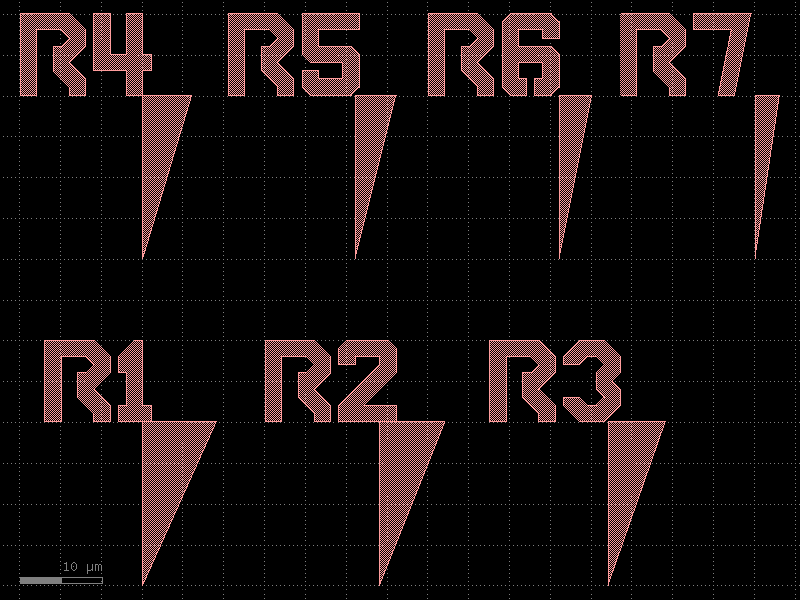gdsfactory.pack#
- gdsfactory.pack(component_list: list[ComponentSpec], spacing: float = 10.0, aspect_ratio: Float2 = (1.0, 1.0), max_size: tuple[float | None, float | None] = (None, None), sort_by_area: bool = True, density: float = 1.1, precision: float = 0.01, text: ComponentSpec | None = None, text_prefix: str = '', text_mirror: bool = False, text_rotation: int = 0, text_offsets: tuple[Float2, ...] = ((0, 0),), text_anchors: tuple[Anchor, ...] = ('cc',), name_prefix: str | None = None, rotation: int = 0, h_mirror: bool = False, v_mirror: bool = False, add_ports_prefix: bool = True, name_ports_with_component_name: bool = True) list[Component][source]#
Pack a list of components into as few Components as possible.
- Parameters:
component_list – list or tuple.
spacing – Minimum distance between adjacent shapes.
aspect_ratio – (width, height) ratio of the rectangular bin.
max_size – Limits the size into which the shapes will be packed.
sort_by_area – Pre-sorts the shapes by area.
density – Values closer to 1 pack tighter but require more computation.
precision – Desired precision for rounding vertex coordinates.
text – Optional function to add text labels.
text_prefix – for labels. For example. ‘A’ will produce ‘A1’, ‘A2’, …
text_mirror – if True mirrors text.
text_rotation – Optional text rotation.
text_offsets – relative to component size info anchor. Defaults to center.
text_anchors – relative to component (ce cw nc ne nw sc se sw center cc).
name_prefix – for each packed component (avoids the Unnamed cells warning). Note that the suffix contains a uuid so the name will not be deterministic.
rotation – optional component rotation in degrees.
h_mirror – horizontal mirror in y axis (x, 1) (1, 0). This is the most common.
v_mirror – vertical mirror using x axis (1, y) (0, y).
add_ports_prefix – adds prefix to port names. False adds suffix.
name_ports_with_component_name – if True uses component.name as unique id. False uses index.
import gdsfactory as gf from functools import partial components = [gf.components.triangle(x=i) for i in range(1, 10)] c = gf.pack( components, spacing=20.0, max_size=(100, 100), text=partial(gf.components.text, justify="center"), text_prefix="R", name_prefix="demo", text_anchors=["nc"], text_offsets=[(-10, 0)], v_mirror=True, ) c[0].plot()
(
Source code,png,hires.png,pdf)
